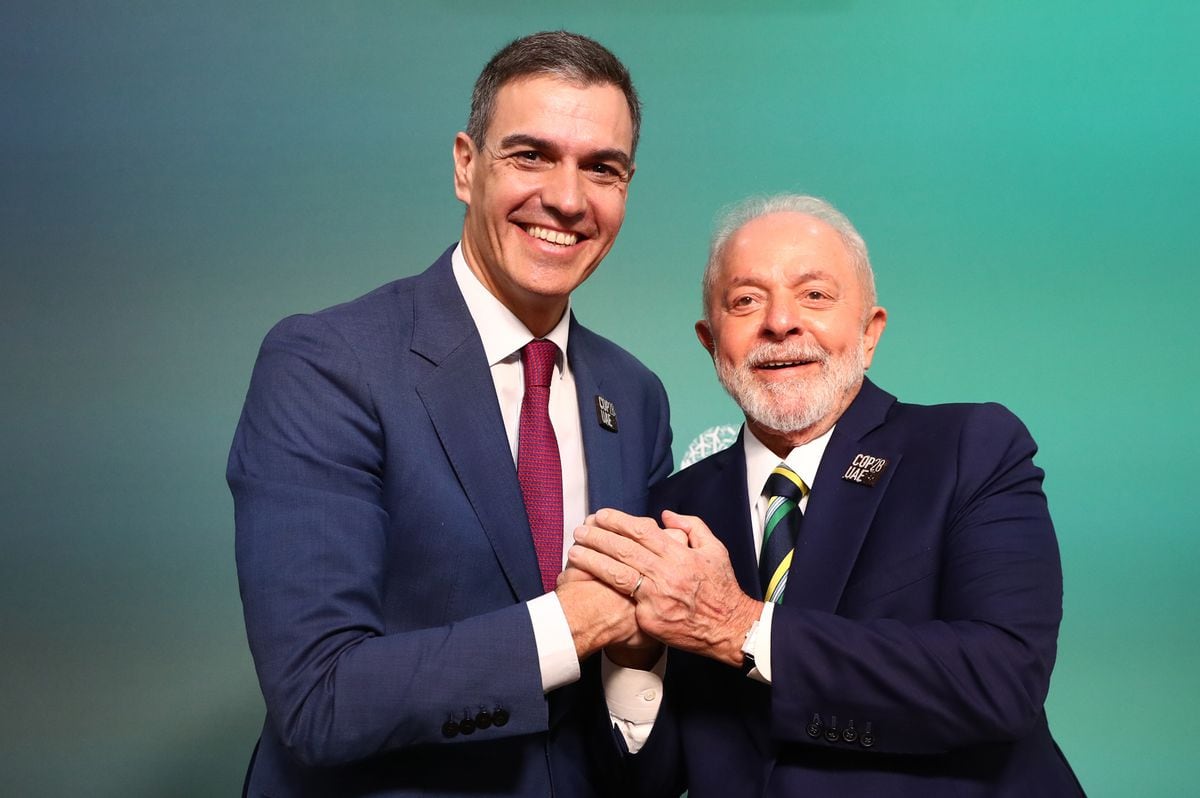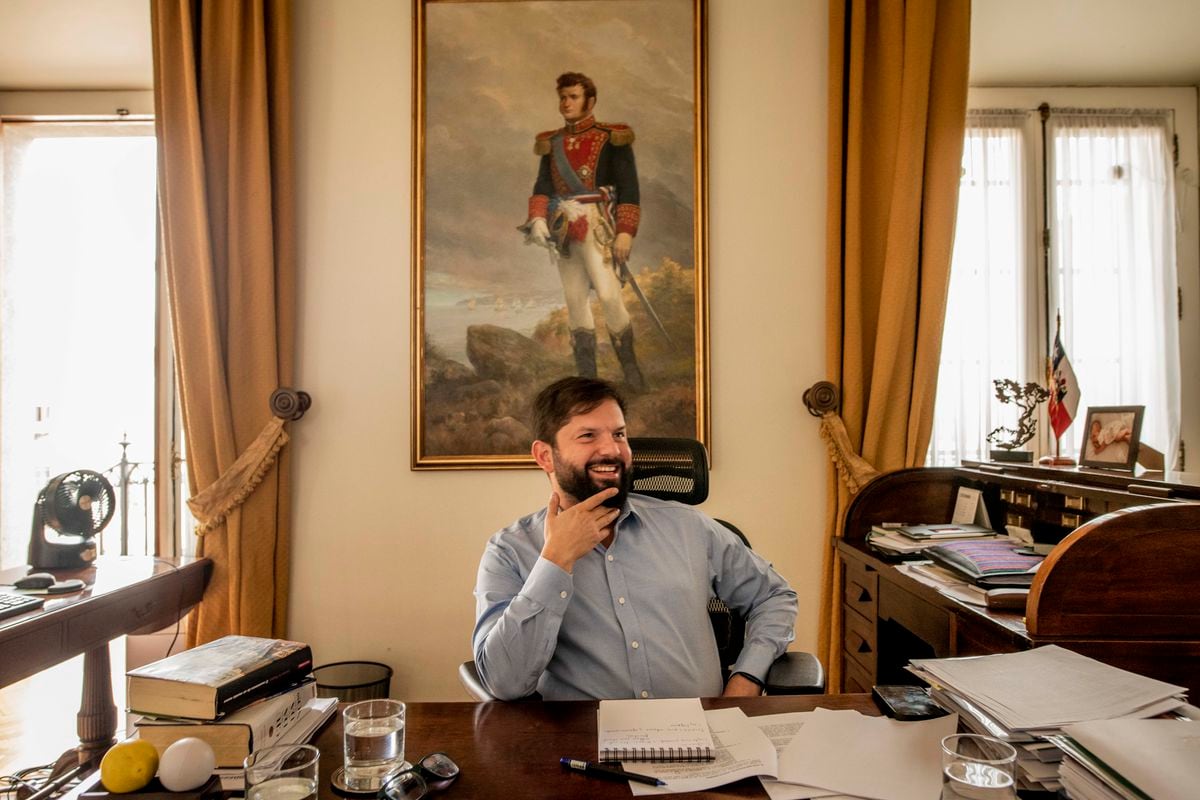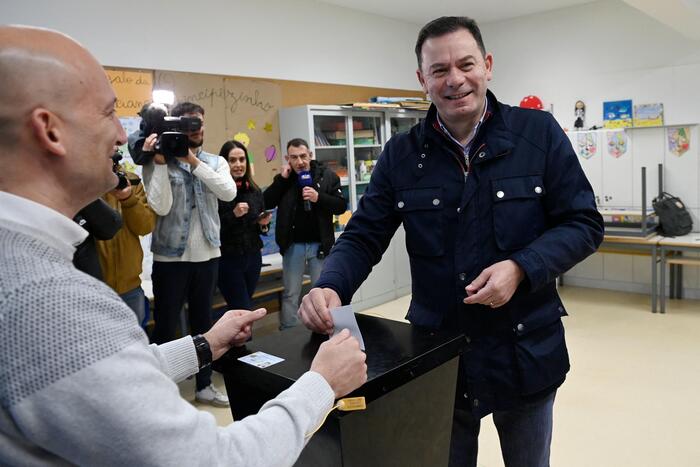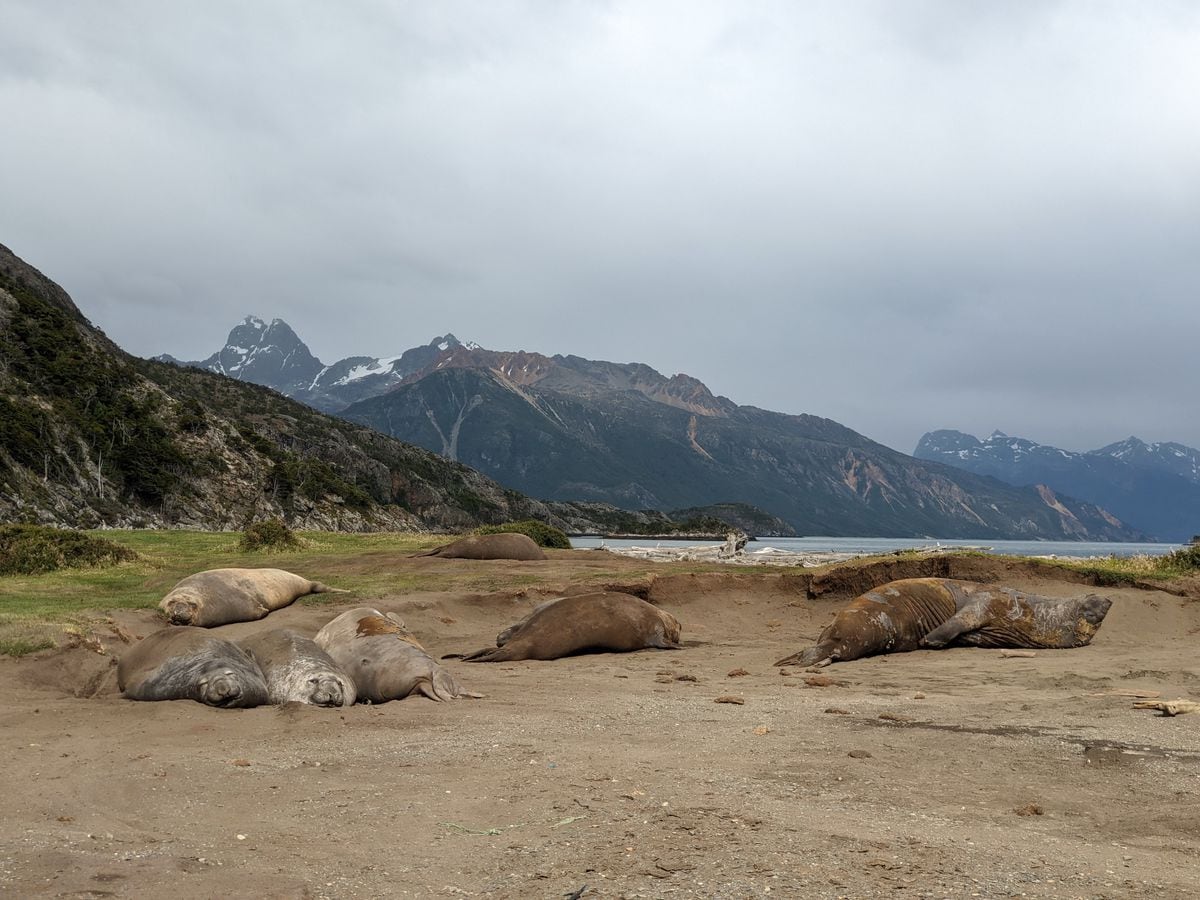The writer Alfredo Sepúlveda, in the dependencies of the library of the Diego Portales University, Santiago. Cristian Soto Quiroz
The writer Alfredo Sepúlveda (Santiago, 52 years old) has dedicated himself to reviewing Chilean political history in his works, such as
La Unidad Popular, the thousand days of Salvador Allende and the Chilean road to socialism
(Sudamericana, 2020) and
Bernardo, a biography by Bernardo O'Higgins
(South American, 2007).
This weekend in which Chile celebrates its national holidays, the journalist considers that patriotism awoke during the constitutional process and the Chilean flag was a campaign tool.
Regarding the result, he believes that the people came out to defend "a constitutional culture" at the polls.
The same one that has prevented the crisis from acquiring a deeper level of seriousness.
"We could be in a serious moment of lack of power and we are not," says the academic in his office at the Diego Portales University.
Question:
How does Chile get to these national holidays?
Answer:
It seems that it does after an earthquake.
This is one of the political crises that Chile has had cyclically every 45 to 50 years.
I think we are in the middle of one of those cycles.
It seems that we are going to a social State of law, but with a rather capitalist component, unlike the last attempt that was the development model from 1932 to 1973. That was closer to autocratic socialism, of internal growth, of distrust in the globalization.
Now we are going to come out with a capitalist matrix, that is not going to break, but we are going to have a correction that will try to emulate the European welfare states.
Q.
How would you define the current model?
R.
Now we have a very strange issue that is a vitiated Constitution and to which everyone lends a kind of reverential servitude.
Despite the fact that everyone considers the Constitution dead, we do not have any of the political actors storming the Palacio de La Moneda.
We could be in a serious moment of powerlessness and we are not.
There seems to be a constitutional culture that was defended on November 4.
That comes from the founding of the republic, reinforced by the dictatorial experience that never again will a state power screw up the other two.
I believe that this was one of the main problems of the constitutional project, in addition to the question of identity, of plurinationality, which also had no social substratum.
Q.
Does constitutional patriotism exist in Chile?
R.
This was seen in the discussion of multinationality.
Who formed the Chilean nation is the State.
In colonial times there was a mestizaje, but it did not participate in the political system, and then came the independence revolution and they had the obligation to form a system that turned out to be a republic.
The social trajectory of Chile is the formation of a slowly growing middle class under the auspices of state institutions until 1973. The concept of homeland, more than constitutional, is state.
That is why when you get involved with such radical transformations of state institutions, such as the elimination of the Senate that the constitutional project proposed, it is completely out of time.
P.
Has the concept of patriotism been politicized?
R.
For the plebiscite campaign undoubtedly.
The Chilean flag took on a different meaning than it normally has.
It was like the Chilean flag in opposition to the Mapuche or the other peoples or the alternative flags that came out during the social upheaval.
It was a campaign tool.
P.
What did Chilean society ask for in the outbreak of 2019?
R.
It was a super strong demand for changes within the capitalist model.
The people took to the streets to fulfill the promise that the Concertación had made: their children will live better than their parents.
That wasn't happening.
The three main demands were health, pensions and education, it was not a new Constitution.
On October 18, 2019, it was a demand for capitalist modernization.
Same as in 2011. I think that is what the left has not wanted or has not been able to see.
P.
In 2018 you said that the transition ended with the student movements of 2011, do you maintain it, with everything that has happened?
R.
Yes, in 2011 the democracy-Pinochet axis is broken.
Now he has returned for campaign reasons, but I do not perceive that it is something true.
P.
José Antonio Kast, the right-wing presidential candidate who won the first round in 2021, tweeted this September 11 that Chile chose freedom on the day of the coup.
R.
But he did not win the first round because of Pinochet.
I'm sure of that.
He won it because the entire political system was fragmented and he did his business.
Q.
You wrote a book about "the experiment called Popular Unity" of the Allende government.
Are we now living an experiment?
R.
No, I do not see that the Government has a political project of the depth of the Popular Unity (UP).
That was a program of absolute and radical transformation of Chilean society.
Furthermore, it was a project based on Marxism.
I believe that the Broad Front and the current government is an electoral causality, with a program that was softened in the second round, but that has no comparison with the UP.
In that sense, he is much weaker in the things he believes in, more fanciful, and based on little.
P.
What should we see in this second stage of the Government?
R.
If Boric is rescued by his political intelligence, as on other occasions, he will realize what he has to do.
That his project of great transformations, as he calls it, is finished, and that it has to be a project of small and successful transformations.
The same thing that all the presidents of Chile have done in the last 30 years.
Q.
And in 2019 there was a social explosion...
R.
It is true, but it is a paradox, because the great constitutional change did not work either, it was rejected.
I once made a relationship with the options that Salvador Allende had to save himself when the coup d'état was coming, which was to end the Popular Unity, ally with the Christian Democracy, stay with the Communist Party and move on.
I don't want to say that we are in a coup scenario, but it must also be said that there are no longer any coups.
What do we have instead?
Perhaps another social explosion, a situation like Argentina, or minor but constant crises.
Subscribe here to the EL PAÍS América newsletter and receive all the key information on current affairs in the region.

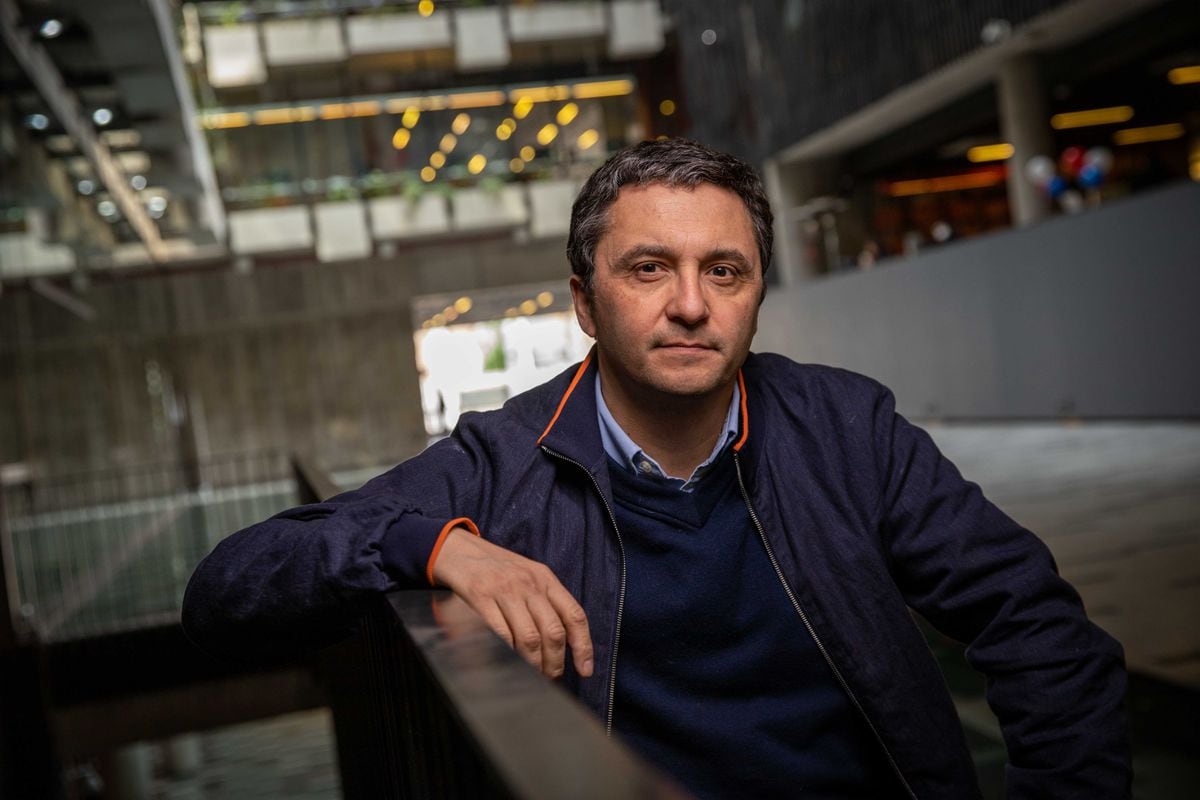

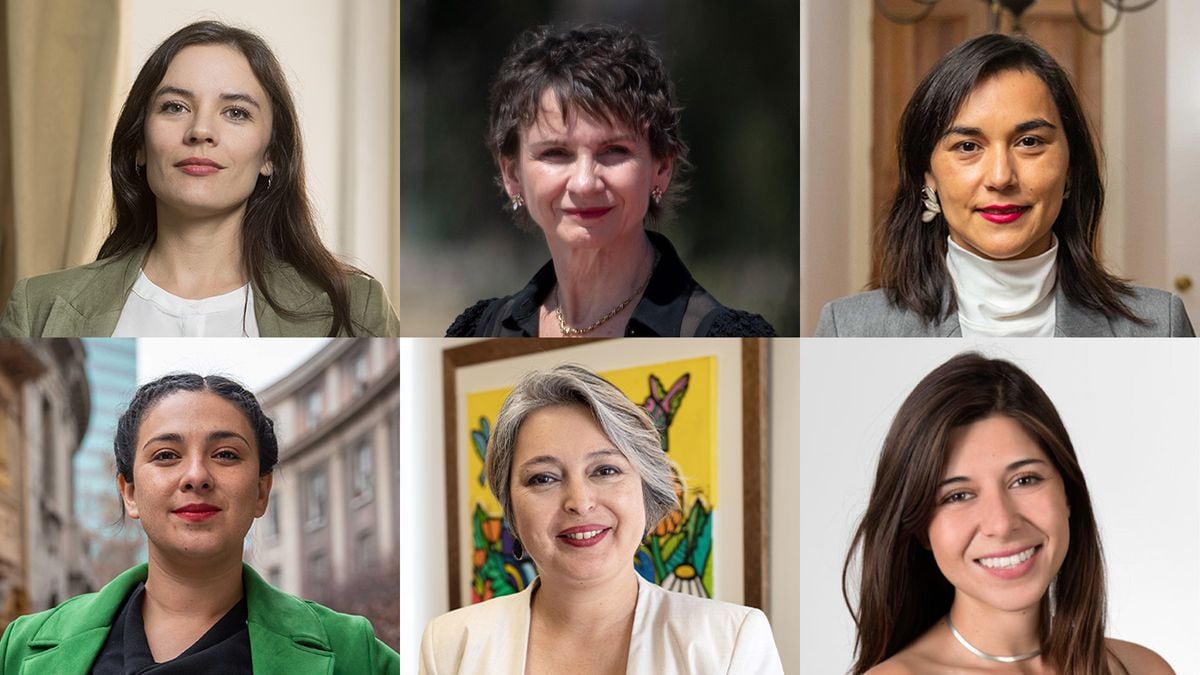
/cloudfront-eu-central-1.images.arcpublishing.com/prisa/MAVSIP6MF252ZKL4ZEZAPMSUPQ.jpg)
